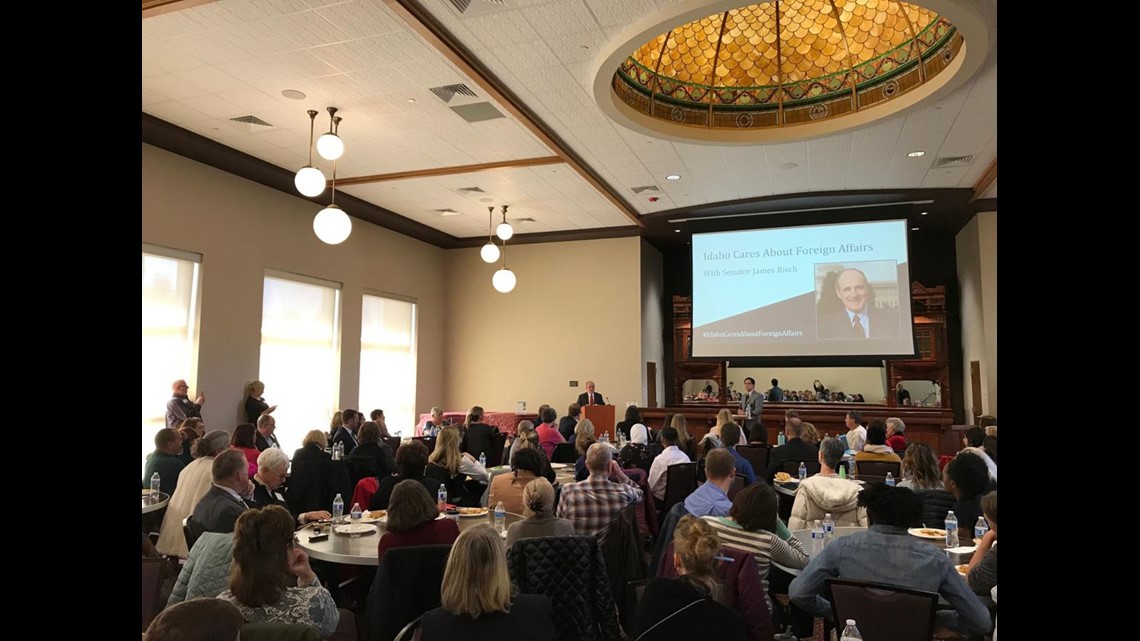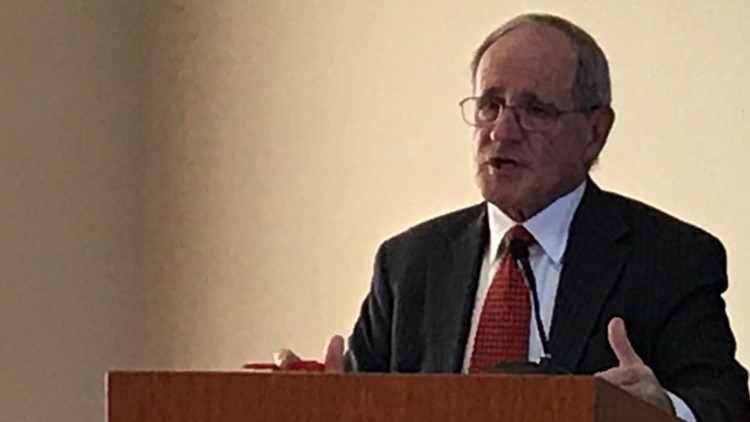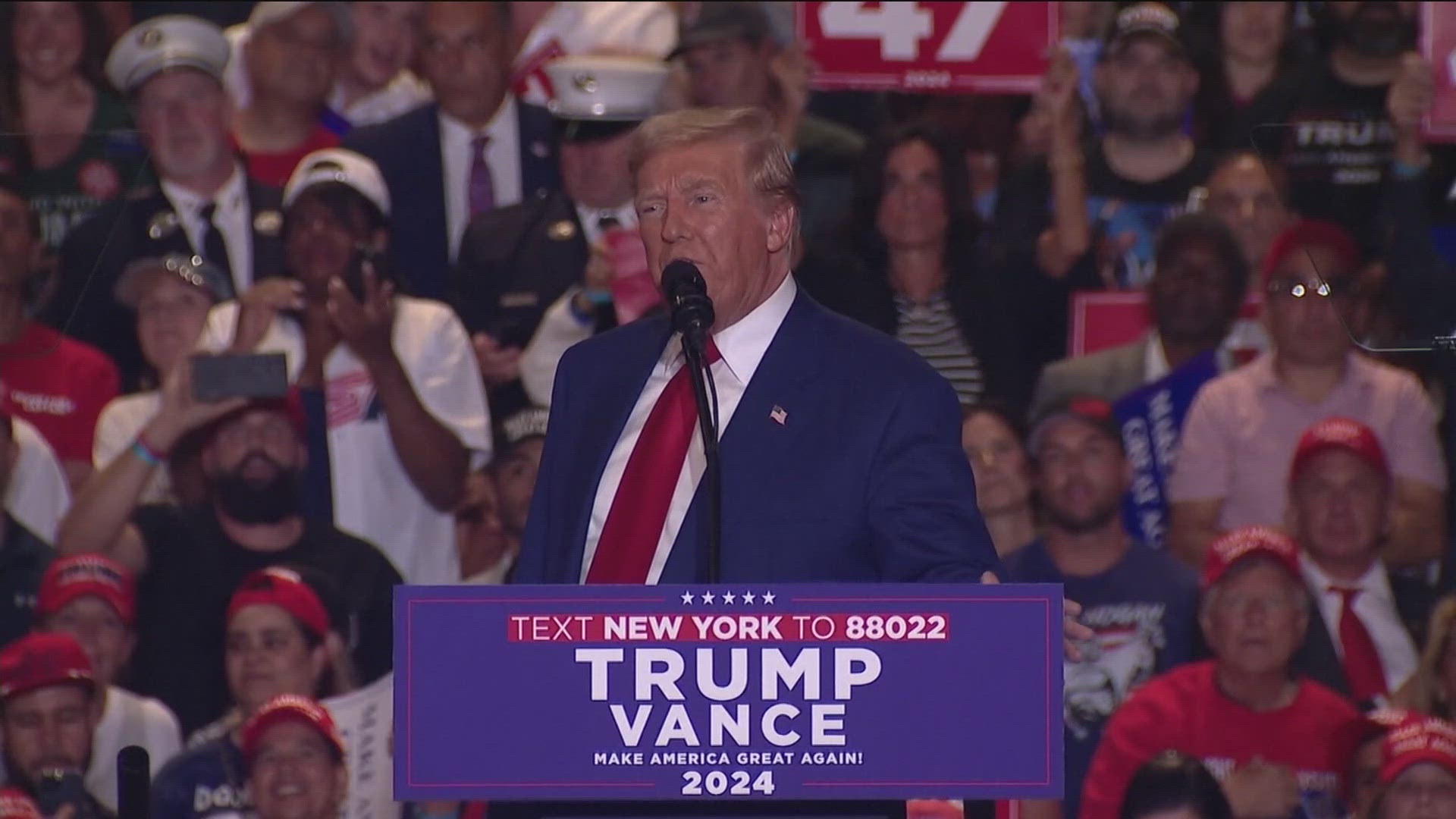BOISE, Idaho — The United States spends only a tiny sliver of its budget on foreign aid, Idaho Sen. Jim Risch, chairman of the Senate Foreign Relations Committee, said Friday, and it’s nowhere near enough to address the need among the world’s poor, vulnerable and suffering.
“There simply isn’t enough money,” Risch told a gathering of nonprofit, non-governmental organizations Friday at the Idaho State Museum, according to the Idaho Press. As a result, he said, U.S. officials focus on where there’s the greatest vulnerability, “where we can do the most good,” and thirdly on efficiency. “Efficiency is incredibly important when you’re dealing with not just limited resources, but resources that can’t possibly match the need that’s out there,” Risch said.
Questioned by representatives of the various groups about recent moves by the Trump administration that canceled or delayed assistance programs for maternal and child health, poverty, food insecurity and other ills in countries including Laos, the Democratic Republic of Congo and Guatemala, Risch said those “were countries that were not doing the right things with the money that we gave them.”
“It breaks your heart to repurpose the money,” the Idaho Republican told a crowd of nearly 160 gathered for a luncheon titled, “Idaho Cares About Foreign Affairs.”


“But when you see it not going where you want to see it go, you really don’t have any choice,” Risch said. “I don’t want to do that, I don’t think anybody wants to do that. … Whether it’s food, whether it’s for maternal programs or anything else, and you find out it winds up in a bank in Switzerland in the name of one of the despots that’s running the country — we can’t have that.”
“I hate doing it,” Risch said. “But sometimes it’s tough love.”
Risch said “corruption is rampant” in governments around the world, so the U.S. ties lots of strings to its foreign aid programs.
“We demand quid pro quo, we demand strings,” he said. “We demand strings when we share American taxpayers’ hard-earned dollars. … We have to be very careful that every dollar that we put into a country, whether it’s for military, whether it’s for economic development or whether it’s for humanitarian, goes where we want it to go, and not to be siphoned off.”
The groups joining together to sponsor the luncheon, all of which have active chapters in Boise, included Oxfam, Save the Children Action Network, Bread for the World, CARE USA, and the One Campaign.
Jonathan Young, senior regional advocacy manager for CARE USA, said after Risch’s talk, “Everyone in this room is really focused on the less than 1% of the federal budget that goes for assistance,” whether that’s HIV/AIDS treatment, food aid, vaccines or other programs. The groups, he said, want to “make sure that it really gets robust funding.”
Young, who served as moderator at the museum event, said many Americans mistakenly think much more of the federal budget is spent on foreign aid; Risch said the tiny slice of the budget includes military aid, economic development, and humanitarian aid that’s sent overseas.
Said Young, “That really literally goes to help millions of people around the world.”
Clark Hansen, a senior regional organizer with Bread for the World, said his group has been working closely with Risch on Senate legislation on global maternal and child malnutrition. Risch is among 35 cosponsors of the bill, SR 260, and told the group he’s planning to move it through his committee.
“I was just really happy to hear that,” Hansen said after the talk.
When he was asked by a representative of the Idaho Interfaith Roundtable Against Hunger how deep the support in Congress goes for that 1% of the federal budget that’s devoted to foreign assistance, Risch said, “We have constructed things like U.S. AID, which is strongly supported by all members of the U.S. Congress. But having said that, the bigger commitment, of course, is to the people that elected them.”
U.S. AID is the United States Agency for International Development, which is responsible for administering civilian foreign aid and development assistance.
“There is a commitment to foreign assistance,” Risch said. “There is a strong commitment to see that it is spent right. We don’t want it in places where it’s going to get wasted, or worse yet, being converted to uses that we don’t want it converted to.”
Risch pledged support for the Global Fragility Act, which has passed the House and cleared his committee, but not yet gotten a vote in the full Senate. He said under Senate rules, a single senator can hold up any bill, and that’s what’s happened on that one.
“I’m all in on the fragility bill,” he said, which is aimed specifically at stabilizing areas affected by conflict and war. “I’m looking for opportunities to pass that. … I think eventually, we get that done.”
Asked about the humanitarian crisis in Yemen, Risch said he has to be careful what he discloses, but said, “What I would say is I’m seeing more hope there than I’ve seen for a really long time.”
Risch said as he’s traveled the world, he’s been stunned by the extent of poverty, particularly on a recent visit to Africa. “There’s nothing — these kids have nothing,” he said.
He also noted that even with everything the U.S. AID does, the U.S. government, “as big as we are … only provide 30% of that effort that Americans make in foreign assistance. Seventy percent of that effort is made by NGO’s like yourselves, or by individuals.”
RELATED: Viewpoint: Idaho Sen. Risch discusses gun control legislation, his re-election, and foreign policy
He recounted meeting with individuals who “truly rise to the Mother Teresa category,” citing Warren Buffet, Bill and Melinda Gates, Ben Affleck, and Idahoan Greg Carr. The Gates, Risch said, “with their own money have eliminated polio in the world,” adding that people “oughta start building statues to those people.”
Risch asked the audience how many had been in a classroom in a third-world country, and more than half of the hands in the room went up. He nodded, and said, “Then you know what I’m talking about. … We’re talking about something that’s very different,” he said. “I was shocked when I went into a school in Africa in one of these villages — the teachers couldn’t read and write. The teachers couldn’t read and write. So what’s the outcome?”
“Passing out food in those big bags that say ‘U.S. AID’ on it, that warms your heart,” Risch said. “It makes you feel good. But we’re going to keep passing those bags out, until we can get root in our economic development systems, get our education systems to take root out there in the world.”
“And you know what? We can do this,” the senator said. “If we don’t do this, the world is lost, because we’re the only ones who can do this.” He told the groups, “God bless you all for the work that you do.”
More from our partner Idaho Press: Books in Idaho prisons: What's allowed, what isn't, and what they mean to those inside



